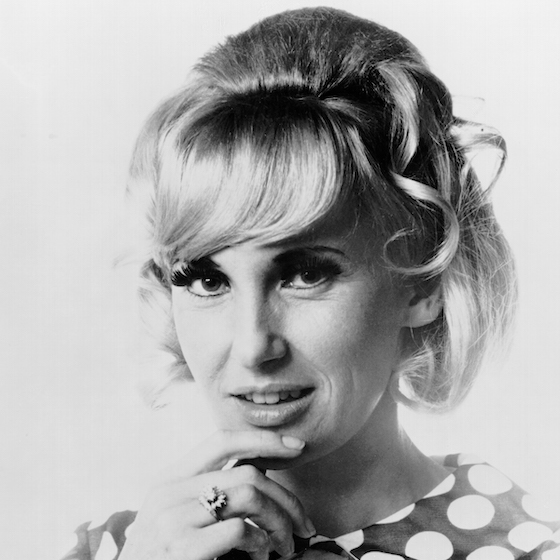The influence of Tammy Wynette's classic song, "Stand By Your Man," cannot be overstated. Released in September 1968 as the lead single from her album of the same name, the song not only became a No. 1 hit, but it also aided in propelling her already successful career and it became her defining song. The tune has also won prestigious awards and been the center of comments and controversies from high-profile individuals, which is a lot for a tune that was reportedly written in a matter of minutes. Here's a look into the songwriting process of "Stand By Your Man" and all the accolades (and controversies) that followed.
The Advent of a Hit

Andrew Putler/Redferns
Wynette wrote her career defining song with Billy Sherrill, her producer at Epic Records. Sherrill brought the general idea of the song to the writing session, but it needed a little tweaking to make it personal to Wynette.
"I had been carrying around a folded sheet of paper in my wallet with chords and lyrics," Sherrill told the Wall Street Journal in 2013. ""My title was, 'I'll Stand By You.' But it didn't sound right for Tammy. She needed a twist."
Sherrill and Wynette then got to working on the tune, and after the changing the perspective of the song, they finished it in about 20 minutes, according to Wynette. They also recorded it that same day. Although the song would go down in history, Wynette wasn't too sure about it in the beginning. Sherrill once told NPR that Wynette wasn't thrilled about the prospect of having to "hit that God-awful high note" for the rest of her life should the song be a hit. She also wasn't sold on the quality of the song itself, so she turned to then-husband and fellow country star George Jones for his opinion.
"I didn't have a lot of faith in my own writing at the time... the song was real different from the rest I'd done," Wynette told Melody Maker in September 1978. "I went home and played it for George [Jones], and he didn't like it. He didn't know I'd written it. That kinda got me started off wrong."
Controversies Over the Song

Michael Ochs Archives/Getty Images
Despite her hesitations, Wynette released "Stand By Your Man" as a single in September 1968, and it eventually made its way to the No. 1 spot and stayed there for three weeks. It wasn't long after its release that it began receiving some criticism due to the lyrics about a woman standing by her man in any situation, despite his imperfections. The song was released in the midst of the Women's Liberation Movement, and some questioned if the message was anti-feminist, but Wynette maintained that that wasn't the original aim of the song.
"I don't' see anything in that song that implies a woman is supposed to sit home and raise babies while a man goes out and raises hell," Wynette wrote in her 1979 autobiography, Stand By Your Man - An Autobiography. "To me, it means: be supportive of your man; show him you love him and you're proud of him, and be willing to forgive him if he doesn't always live up to your image of what he should be."
The song was the center of a very public controversy when none other than future first lady Hillary Clinton put it in a negative light in 1992, 24 years after its release. The comment occurred during a 60 Minutes interview during Bill Clinton's first presidential run in which the Clintons were addressing tabloid allegations of extramarital affairs by the future president.
"I'm not sitting here, some little woman, standing by my man like Tammy Wynette," Hillary Clinton famously said in the piece. "I'm sitting here because I love him and I respect him and I honor what he's been through and what we've been through together, and you know, if that's not enough for people, then heck, don't vote for him."

Photo by Ron Galella/Ron Galella Collection via Getty Images
The remark was quoted and highly publicized after the interview, and Wynette took personal offense to her comment. Wynette's fifth husband, George Richey, reportedly told USA Today that the singer was "madder than hell" about the statement, according to Politico. She also wrote a letter directed to Hillary that read, "With all that is in me, I resent your caustic remark. I believe you have offended every true country-music fan and every person who has made it on their own with no one to take them to the White House." Wynette, who wrote that she was "as angry as I can be" over Clinton's remark, also invited Clinton to "stand toe-to-toe" with her, and said, "I can assure you, in spite of your education, you will find me to be just as bright." Following Wynette's statements, Clinton issued an apology.
"I didn't mean to hurt Tammy Wynette as a person," Clinton said in response. "I happen to be a country-western fan. If she feels like I've hurt her feelings, I'm sorry about that."
The "First Lady of Country Music" would spend years defending the song, and it remains one of her signature songs — no small feat in a career that included 20 No. 1 hits. Wynette's friend and publicist, Evelyn Shriver, told NPR that the country icon felt it was unbelievable that "a song that took me 20 minutes to write, I've spent 20 or 30 years defending."
An Enduring Legacy
Despite a few negative reactions, "Stand By Your Man" has continued to be a song for which Wynette will always be remembered. In addition to its status as a No. 1 on country radio, the song crossed over to the Adult Contemporary chart, peaking at No. 1, and it topped charts in the U.K., Ireland, the Netherlands and Belgium. The song won a Grammy award in 1970 for Best Country Vocal Performance, Female, and it was inducted into the Grammy Hall of Fame in 1999.




